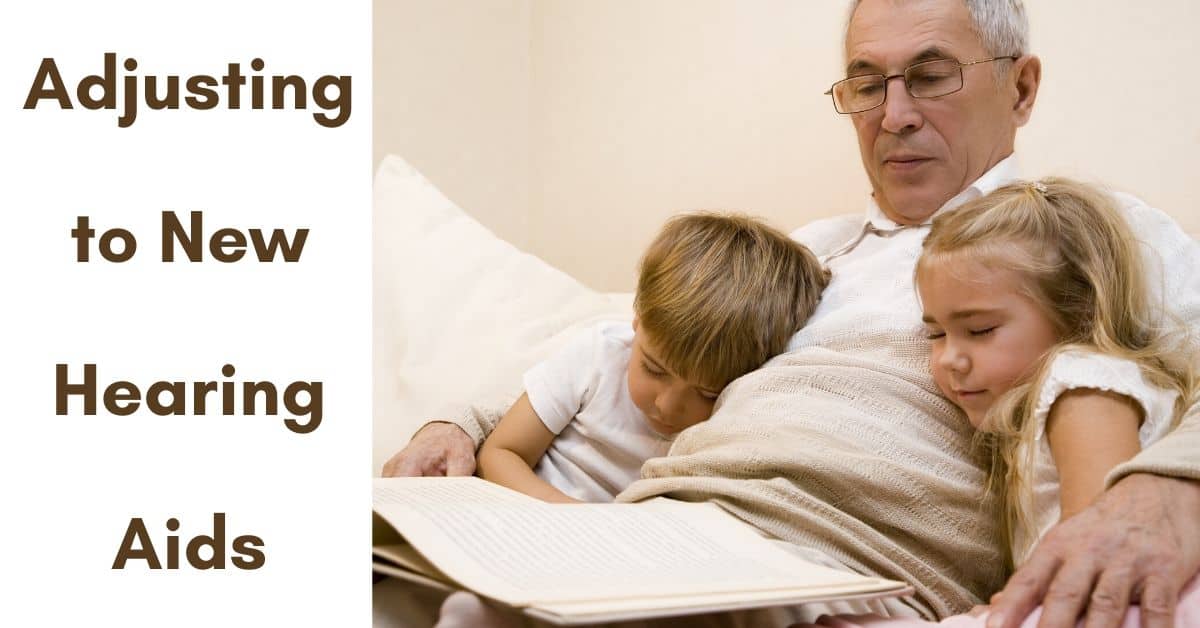- The Connection Between Hearing Loss and Dementia - July 30, 2024
- The Advantages of Rechargeable Hearing Aids - July 16, 2024
- How to Enjoy Music Festivals While Protecting Your Hearing - July 3, 2024
Whether you’ve just invested in your first pair of hearing aids, or you’ve upgraded to new devices, adjusting to new hearing aids will take a bit of time. Not only do you have to get used to wearing hearing aids, you also need to get used to hearing with hearing aids. With hearing aids you’ll suddenly hear more sounds than you’ve heard in the last few years, and your ears and brain will need a bit of time to adjust to your improved hearing.
Sounds Seem Loud
If you’ve been living with untreated hearing loss for a few years, you’ve grown accustomed to hearing less sounds. You don’t hear the birds chirping, or the roar of traffic in the background. You may not hear the ticking of the clock on the wall or the hum or the air conditioner.
When you get new hearing aids and start hearing sounds normally, you may feel that all the sounds around you are suddenly very loud or uncomfortable. You’ll need to retrain your brain to hear all these sounds, and get used to hearing more background sounds in your environment. When you’re adjusting to new hearing aids, sounds may seem loud for a few days. Be patient with yourself at first. You’ll soon get used to hearing all the sounds around you, and enjoy better hearing.
You’ll Feel More Tired
As you adjust to your new hearing aids, you’ll start to hear all the sounds around you again. Your brain will start receiving more auditory signals, and need to use more energy interpreting these signals so you can hear the sounds around you.
During your first week with new hearing aids, hearing can be exhausting. You’ll hear more background noise, and your brain will use more energy identifying speech sounds, and focusing on what you want to hear. Don’t worry if you feel more tired than usual the first few days you adjust to your new hearing aids.
Tips for Adjusting to New Hearing Aids
Are you adjusting to new hearing aids? Here are a few tips to follow as you adjust to your new hearing devices:
- Be patient: Transitioning to new hearing aids will take a bit of time. Don’t compare your hearing aids with your glasses. When you get glasses to correct your vision, you can see better immediately, and enjoy seeing all the details you were missing. Adjusting to hearing aids takes a bit more time, and you have to retrain your brain to hear all the sounds around you. Be patient during the first few days with your new hearing aids, and don’t worry if the sounds seem overwhelming at first. Within a few days you’ll adjust to hearing all these sounds.
- Wear your hearing aids as much as possible: When you first get hearing aids, you’ll suddenly hear more of the sounds around you. This is exhausting for your brain, and you’ll need a bit of time to adjust. In the first few days, wear your hearing aids as much as possible. You can take breaks when all the sounds become exhausting, but put your hearing aids back on as soon as you’re able to. Wearing your hearing aids as much as possible will help you adjust more quickly to your new devices.
- Make sure they fit: In the first few days of wearing your new hearing aids, you’ll see if they fit properly. Many people will need their hearing aids readjusted at least once, so visit us if you need to check the fit of your hearing aids.
- Learn about the programs and settings: As you get more comfortable with your hearing aids, learn more about the programs and settings, and try adjusting them in different listening environments. Visit us for a follow up appointment and ask questions about your devices. As you adjust to your new hearing aids, you may need to have the devices recalibrated or adjusted to match your hearing needs.
Monitor Your Hearing Health
After you’ve adjusted to your new hearing aids, you can enjoy hearing all the sounds around you! Make sure you continue to monitor your hearing health with annual hearing exams, and by visiting us whenever you have questions or concerns about your hearing aids and your hearing health.

